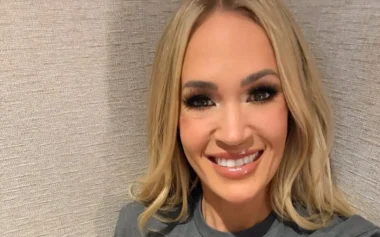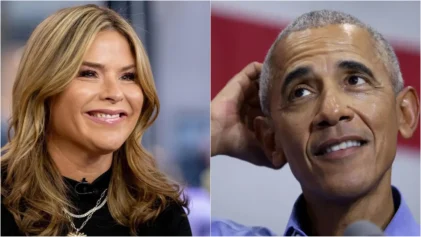The “Age of Trump” will likely last far longer than the presidency of its namesake, with effects to be felt long after the current occupant leaves the White House. There are some that now view America as in crisis, or at the very least question how a country that for years espoused a belief in “life, liberty and the pursuit of happiness” somehow elected a man that embraces zero of those ideals to lead the free world.
Global confidence in America has fallen as well, with Gallup revealing that U.S. approval had fallen from 48 percent to 30 percent just one year into the Trump presidency. But there’s one area that the Trump administration has excelled in — namely, the appointment of federal judges — which the GOP-led Congress had essentially blocked during Barack Obama’s presidency.
As the Los Angeles Times reported in January, Trump ranks sixth among presidents in first-year appointments of federal judges. That includes the appointment of Neil Gorsuch, who joined the Supreme Court after a year-long vacancy following the death of Justice Antonin Scalia on February 13, 2016.
By then President Obama had made two Supreme Court appointments, adding Justices Sonya Sotomayor and Elena Kagan to the bench in 2009 and 2010, respectively. Merrick Garland would have been his third nomination, but by 2016 the Republicans, by then in control of both houses Congress, blocked Obama’s nomination by refusing to hold a Senate confirmation hearing for Garland.
Led by Senate Majority Leader Mitch McConnell, Republican congressmen argued that since Obama was in the final year of his presidency the seat should be filled by the incoming president, which of course turned out to be Trump. By breaking precedent, the Senate allowed the nomination to expire on January 3, 2017, and the seat would ultimately be filled by Trump’s pick, not Obama’s.
Since then the Trump administration, with full cooperation from McConnell and the GOP majority in the Senate, has eagerly started packing the federal judiciary with nominees that align with it ideologically. The contrast could not be sharper than from 2016, when McConnell had insisted that “It is a president’s constitutional right to nominate a Supreme Court justice, and it is the Senate’s constitutional right to act as a check on a president and withhold its consent.”
By May of this year, just a little over a year since Gorsuch’s confirmation, McConnell’s tone had reversed significantly as he told conservative radio host Hugh Hewitt that confirming Trump’s judicial picks was a “top priority.”
Largely given free rein, as of February Trump had nominated 87 people to serve as federal judges, and 92 percent of those were white men — breaking a trend set by recent predecessors that had made an effort to make federal benches across America more diverse.
But despite enjoying a majority in Congress, Trump has still faced a historic amount of pushback over his own picks. Pew reported in March that “The 23 men and six women Trump has successfully appointed so far have faced a total of 654 “no” votes on the floor of the Senate.” In comparison, Pew found that “The 330 judges Barack Obama appointed during his eight years in office faced an average of six votes against them. George W. Bush’s 328 confirmed judges faced an average of two, and Bill Clinton’s 382 judges faced an average of just over one.”
Representation matters. It matters a lot. Particularly when placing people in positions that allow them to have domain over the freedom — or lives — of others. While racial bias and its role in the justice system are well known, other studies confirm that political bias may also affect judges when in sentencing, resulting in harsher sentences for black defendants.
In a Harvard Law School study titled “Judicial Politics and Sentencing Decisions” by professors Alma Cohen and Crystal S. Yang, the duo explored the role of political bias during the sentencing process, writing “We find that Republican-appointed judges sentence black defendants to 3.0 more months than similar non-blacks and female defendants to 2.0 fewer months than similar months compared to Democratic-appointed judges, 65 percent of the baseline racial sentence gap and 17 percent of the baseline gender sentence gap, respectively.”
They also found that “These differences cannot be explained by other judge characteristics and grow substantially larger when judges are granted more discretion.” In short, federal judges that lean to the right have seemingly found it harder to divorce personal politics from judicial discretion, all at the expense of Black defendants. Worse, such biases run far deeper than many realize, with the study also finding that those in “states with higher levels of racism” consistently gave Black defendants stiffer sentences.
Race undoubtedly played a role, with the study also finding that Black conservative judges don’t share the same judicial biases as their white counterparts. According to the study, “Black judges impose lower sentences on average than non-black judges and that judges with more years of experience on the bench impose slightly longer sentences relative to their less experienced counterparts.”
Adding, “Republican-appointed judges give defendants an average of 2.4 months longer in prison than Democratic-appointed judges.”
The Harvard study examined the decisions and sentencing practices of more than 1,400 federal trial judges through information provided by Federal Judicial Center and the United States Sentencing Commission. Armed with more than 15 years of sentencing information, the study confirmed a deep-seated bias that exposes how Black defendants are consistently given the short end of the stick.
And thanks to the Trump administration’s affinity for conservative white male ideologues, this trend doesn’t show any signs of easing anytime soon. Nor can judicial appointments be reversed, making the potential damage to our justice system even more pronounced.
“It is most unfortunate. It turns the clock back on years of work and effort that went into promoting judicial diversity,” Kristen Clarke, president of the Lawyers’ Committee for Civil Rights Under Law explained to USA Today.
It’s a grim outlook that professors Michael J. Nelson and Rachael Hinkle shared with the Washington Post. “Diversifying the federal bench expands the types of judges widely cited by similar colleagues, broadening the range of voices that influence legal development. Trump’s nomination of mainly white and male judges affects not only the outcomes of particular cases, but also the development of the legal rules we live by.”
Elections have consequences. And as the 2016 presidential election proved, we’ll be feeling the effects of this one for quite a while.


